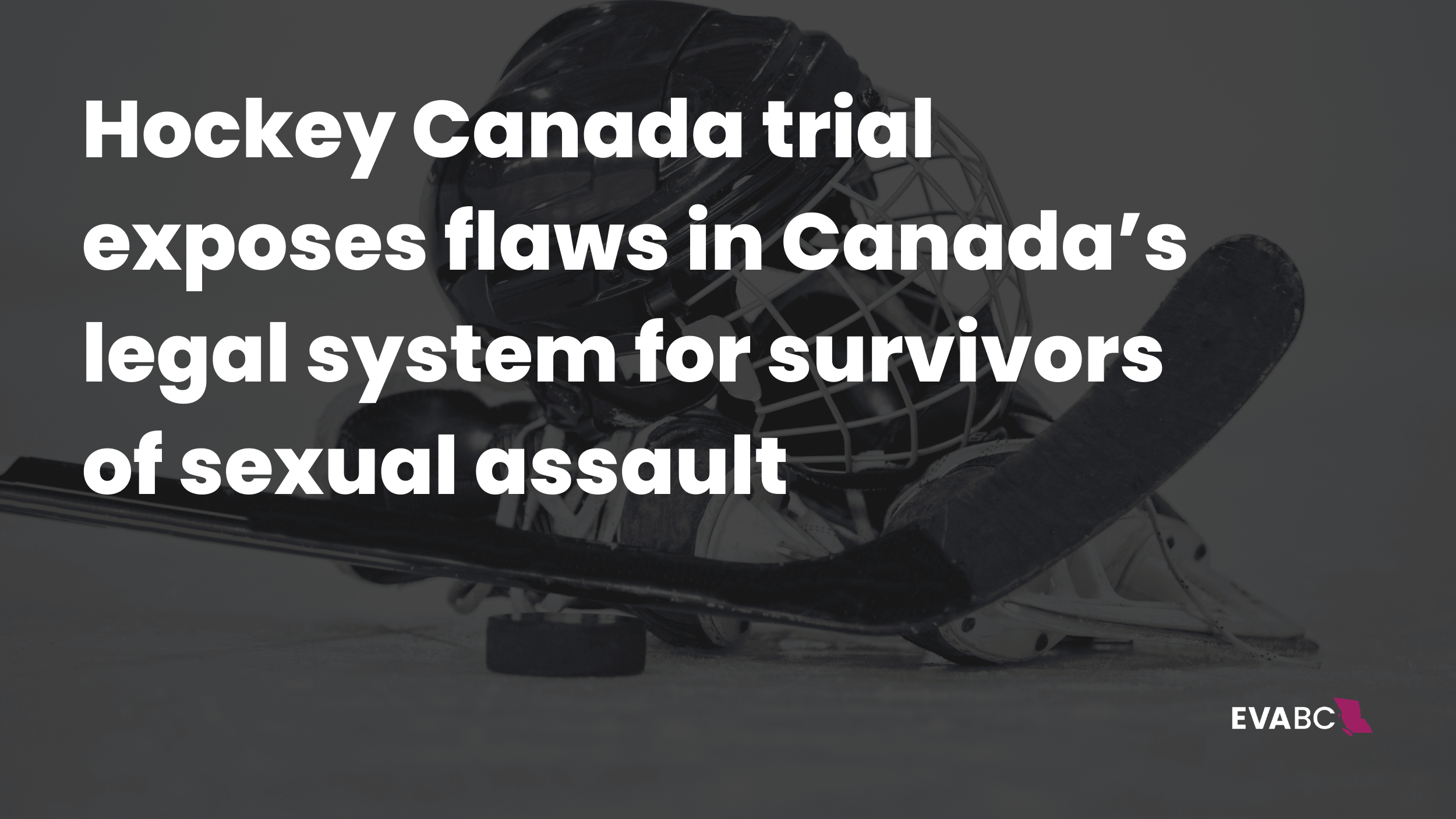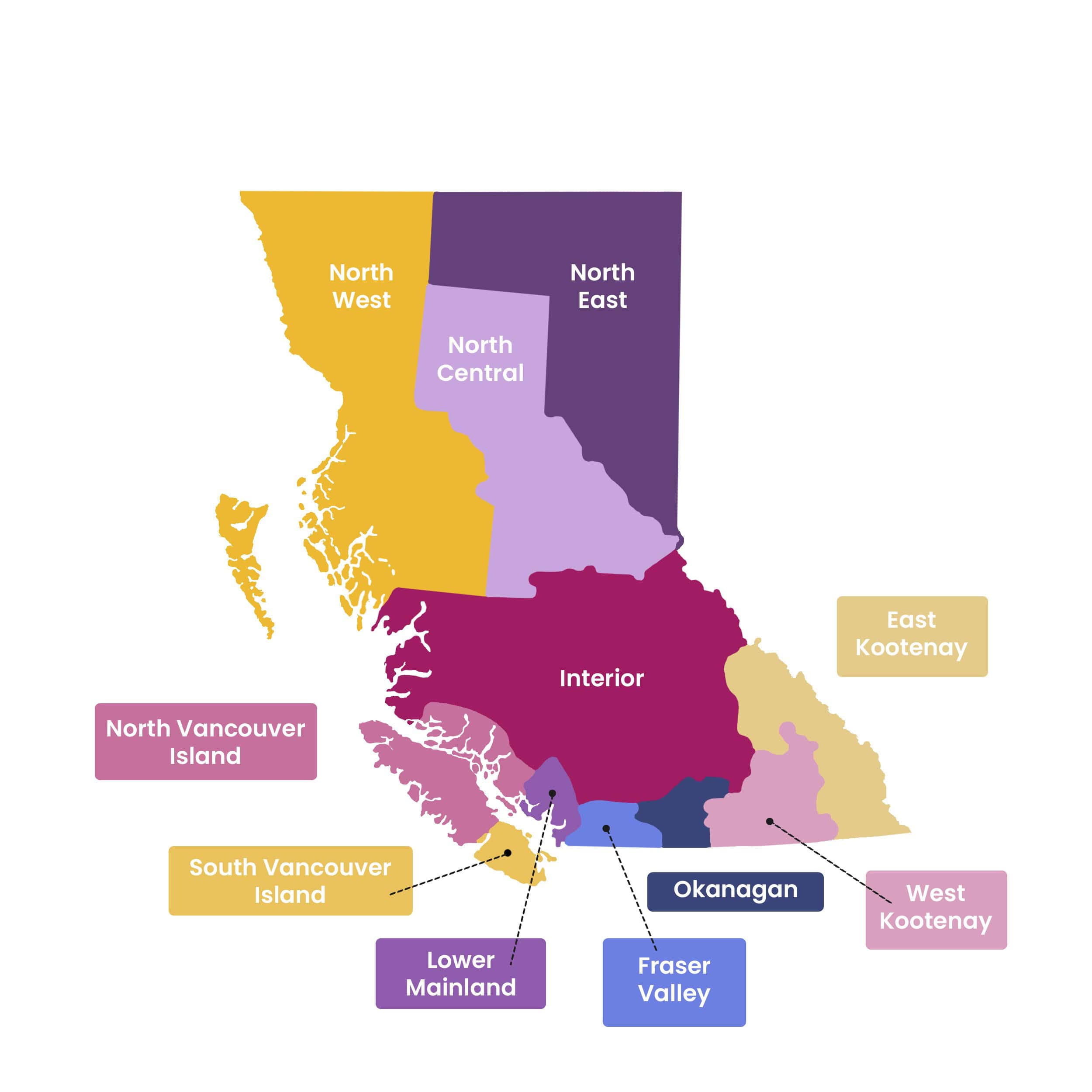FOR IMMEDIATE RELEASE —
May 12, Vancouver, BC
The Hockey Canada trial, involving five men (former World Junior Ice Hockey team players) accused of sexually assaulting a woman in London, Ontario in 2018, shines a harsh light on how Canada’s legal system often fails and re-traumatizes survivors — particularly when it comes to recognizing the realities of coercion and power dynamics in cases of sexual assault.
The heart of this case, and many like it, lies in understanding that true consent must be voluntary, ongoing, and free from coercion or pressure. Coercive consent is not consent. Being afraid to say no is not consent.
The Criminal Code of Canada sets out a clear definition of consent that anticipates some of the challenges around consent that might be raised as a defense in a sexual assault case — both in the courtroom and in the court of public opinion.
But despite the thorough and thoughtful definition of consent in the Criminal Code, watching the news of the Hockey Canada trial it can sound like there is still a gap in understanding consent and sexual assault. The complainant described feeling overwhelmed and attempting to leave, only to be asked afterwards to record a video saying that she consented. This framing of consent raises serious concerns about coercion and manipulation — situations the law explicitly recognizes as non-consensual. Is expressing interest in a “wild night” a waiver of your legal right to say no? Is being impressed by someone’s status a license for them to ignore your autonomy?
Ninu Kang, Executive Director of EVA BC explains: “Consent isn’t just about saying yes — it’s about having the freedom to say no without fear, pressure or consequence. When someone is intimidated or manipulated, that is not consent, it’s coercion. And when our legal system continues to challenge and undermine survivors on consent, it’s no wonder that only six percent of survivors of sexual assault (15 years of age and older) report the assault to the police and potentially proceed to trial and conviction.”
Public education tools like the “Consent Tea” video — which uses a simple analogy to illustrate the absurdity of confusing coercion and consent — should be required viewing. The video demonstrates how giving consent to drinking a cup of tea is a perfect parallel of what is required for consent to sex.
While education around consent is essential, it is important to recognize that in many cases of sexual assault perpetrators are aware that there is no consent and they act anyway. This is something that needs to be addressed through more intentional education, engagement, and accountability mechanisms for those who may choose to commit sexual assault.
Unfortunately, this case echoes a disturbing pattern in how survivors — particularly women — are scrutinized, shamed, or disbelieved, while powerful perpetrators benefit from outdated myths and biased assumptions that work in their favour.
But there is hope for change. In British Columbia, Dr. Kim Stanton is expected to complete her year-long review of BC’s legal system’s treatment of intimate partner violence and sexual violence in June, and we are hopeful that her recommendations will help ensure changes that will do more for survivors of sexual violence who have the courage to come forward and seek justice. We acknowledge the great personal cost that women (like the one in this case) face when they choose to take this step.
Cases like Hockey Canada’s should be a wake-up call — not just for courts, but for all of us — to demand a legal system that truly understands sexual violence and the complexities of consent.
If you or anyone you know is a survivor of sexual assault and needs support, there are Sexual Assault Services programs in communities across BC that can help you.
Ending Violence Association of BC (EVA BC)
The Ending Violence Association of BC (EVA BC) is a member organization that supports, trains and advocates for anti-violence workers in close to 300 anti-violence programs across the province that respond to sexual and intimate partner violence, child abuse, and criminal harassment.
For media enquiries
To arrange media interviews with EVA BC’s Executive Director, Ninu Kang, please contact:
Fiona Jackson | fjackson@endingviolence.org |


